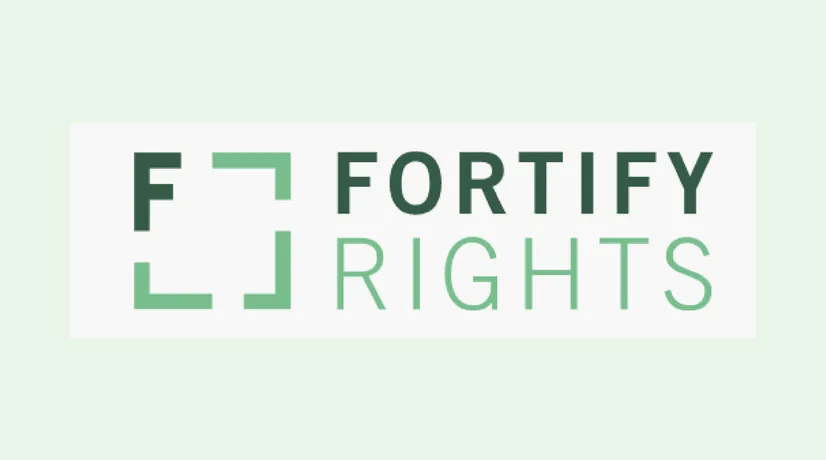Myanmar: Ensure the Right to Vote Ahead of Elections
28 October 2020

Myanmar-based civil society groups call on government to uphold right to vote, including for Rohingya
(YANGON, October 28, 2020)—The Government of Myanmar should ensure the right to vote, regardless of race, religion, or ethnicity, said 10 Myanmar-based civil society organizations today. The organizations published a joint statement calling on the Myanmar Government and Union Election Commission (UEC) to reverse its policies of disenfranchisement and “take the necessary urgent measures” to protect and promote the right to vote in Myanmar.
“Myanmar’s revival of a democratic system has been costly in terms of lives and liberties lost,” said Khin Zaw Win, Director of Tampadita Institute, one of the signatories to the statement. “This joint statement is a reminder to political parties and institutions to be mindful of that fact.”
The statement today comes on the heels of the exclusion of Rohingya voters and candidates and an announcement from the UEC that it will cancel voting in several ethnic areas, including in Kachin, Chin, and Rakhine states, disenfranchising up to a million voters in Rakhine State alone. The authorities have also cancelled voting in areas of Bago Region and Karen and Mon states.
Ten Myanmar civil society organizations signed on to the statement, including: the Arakan Information Center; Free Expression Myanmar; the Center for Social Integrity, Htoi Gender Foundation, Kachin State Women’s Network, SMILE Foundation, the Tampadipa Institute, YMCA–Mandalay, Shwe Minn Thar Foundation-Myanmar, and the Mandalay Justice Law Firm.
The civil society groups said that the political disenfranchisement of Rohingya is of “particular concern,” and “closely tied to the denial of citizenship for Rohingya and related laws.”
The Myanmar authorities denied almost all voting-age Rohingya—including hundreds of thousands of Rohingya in Rakhine State—the right to vote through a discriminatory application of Myanmar’s citizenship law. The UEC rejected all Rohingya candidate applications for the 2020 election. Rohingya participated in 2010 nationwide elections in Myanmar, and three Rohingya served in Parliament as recently as 2015. In 2015, the government excluded Rohingya from voting, running for office, or maintaining Rohingya-led political parties.
The continued denial of the right to vote or to stand for election is part of the Myanmar government’s wider persecution of the Rohingya ethnic minority and refusal of their full citizenship rights, said Fortify Rights.
The civil society statement also raised concerns over censorship of opposition political parties and UEC restrictions on political broadcasts. According to the UEC rules for broadcasting, political parties must submit a script for the proposed broadcast for review and edits under terms that effectively render criticism of the military, government, or existing laws unlawful.
“Existing restrictions on political participation for voters and candidates as well as restrictions on free speech must be lifted in order for credible elections to be held,” the statement said. “Any failure to hold inclusive, free, and fair elections this November poses a serious risk to the democratization process as well as diversity and peace-building efforts across the country.”
International law protects the right to vote as a fundamental right. Article 21(3) of the Universal Declaration on Human Rights enshrines this right, providing that the will of the people should be “expressed in periodic and genuine elections which shall be by universal and equal suffrage and shall be held by secret ballot or by equivalent free voting procedures.” Article 25 of the International Covenant on Civil and Political Rights (ICCPR) further stipulates that “Every citizen shall have the right and the opportunity . . . to vote and to be elected at genuine periodic elections which shall be by universal and equal suffrage and shall be held by secret ballot, guaranteeing the free expression of the will of the electors,” and that this right may not be denied based on any “status,” including race or religion.
“The international community should recognize that this election is neither free nor fair and adjust their policies towards the Myanmar government accordingly,” said Ismail Wolff, Regional Director at Fortify Rights. “The Myanmar government should urgently facilitate the right to participate in the upcoming elections, without any discrimination whatsoever.”
For more information, please contact:
Ismail Wolff, Regional Director, Fortify Rights
+66 81 643 0009 (Thailand)
Email: [email protected]
Twitter: @ismailwolff, @FortifyRights
John Quinley III, Senior Human Rights Specialist, Fortify Rights
+66 62 814 1130 (Thailand; WhatsApp)
Email: [email protected]
Twitter: @john_hq3, @FortifyRights
Matthew Smith, Chief Executive Officer, Fortify Rights
+66 85 028 0044 (Thailand; WhatsApp)
+1 202 503 8032 (U.S.)
Email: [email protected]
Twitter: @MatthewFSmith, @FortifyRights
Announcements
21 May 2025
Open letter: Malaysia must lead ASEAN with principle, not hypocrisy, to address the Myanmar crisis

Progressive Voice is a participatory rights-based policy research and advocacy organization rooted in civil society, that maintains strong networks and relationships with grassroots organizations and community-based organizations throughout Myanmar. It acts as a bridge to the international community and international policymakers by amplifying voices from the ground, and advocating for a rights-based policy narrative.